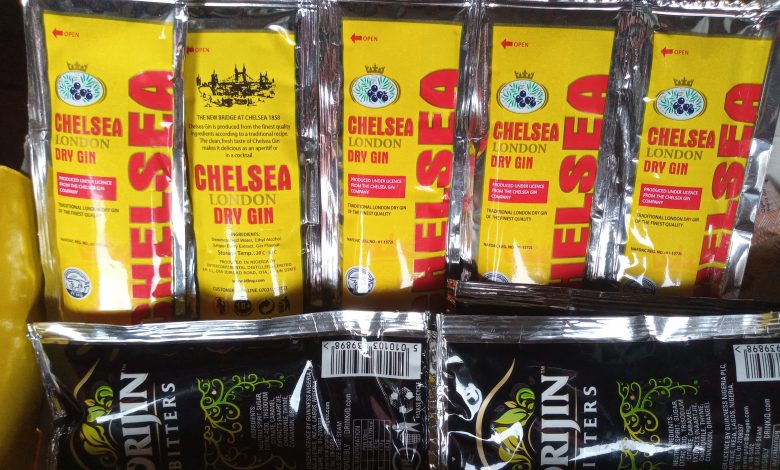On Tuesday, Nigerian members of the Distillers and Blenders Association will demonstrate against the prohibition on producing, distributing, and retailing alcoholic beverages in PET bottles and sachets.
In a statement released by the association, they threatened to storm the National Agency for Food and Drug Administration and Control’s Lagos office to protest the decision.
This was in response to the declaration made on Monday by Prof. Mojisola Adeyeye, the Director-General of NAFDAC, that the organization had started enforcing the prohibition on alcoholic beverages in sachets, PET, and glass bottles with a capacity of less than 200ml.
She said : “As of January 31, 2024, there is no alcoholic beverage in these categories that are registered by NAFDAC. I also want to inform you that the agency has started enforcement actions to enforce the implementation of this policy. The window period given to manufacturers by NAFDAC to sell off all alcoholic drinks in this category elapsed on January 31, 2024.
“To this end on the first day, after the elapse of the window period, the agency commenced nationwide enforcement actions on February 1, 2024 to enforce the implementation of the new policy”.
Speaking further, She said: “This situation is of course not acceptable, and the agency views this as flagrant disobedience to the laws of Nigeria. NAFDAC views this matter seriously and will engage all statutory means, which may include prosecution, to deal with the matter.
“I want to use this medium to ask all holders of alcohol in sachets, PET and glass bottles, empty sachets, PET bottles, empty glass bottles, and other packaging materials of these banned products to immediately report to the Investigation and Enforcement Directorate of NAFDAC for hand-over of same to NAFDAC for destruction, to prevent sterner measures including prosecution”.
Remember that in January 2022, NAFDAC ceased registering alcoholic beverages in small-volume PET and glass bottles, as well as sachets, with a capacity less than 200 milliliters.
This decision was made in response to a committee that included representatives from the Federal Ministry of Health, NAFDAC, the Federal Competition and Consumer Protection Commission, the Association of Food, Beverages and Tobacco Employers, and the Distillers and Blenders Association of Nigeria. At that point, the small-scale alcohol manufacturers decided to phase it out progressively by January 31st, 2024.


